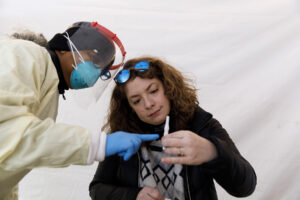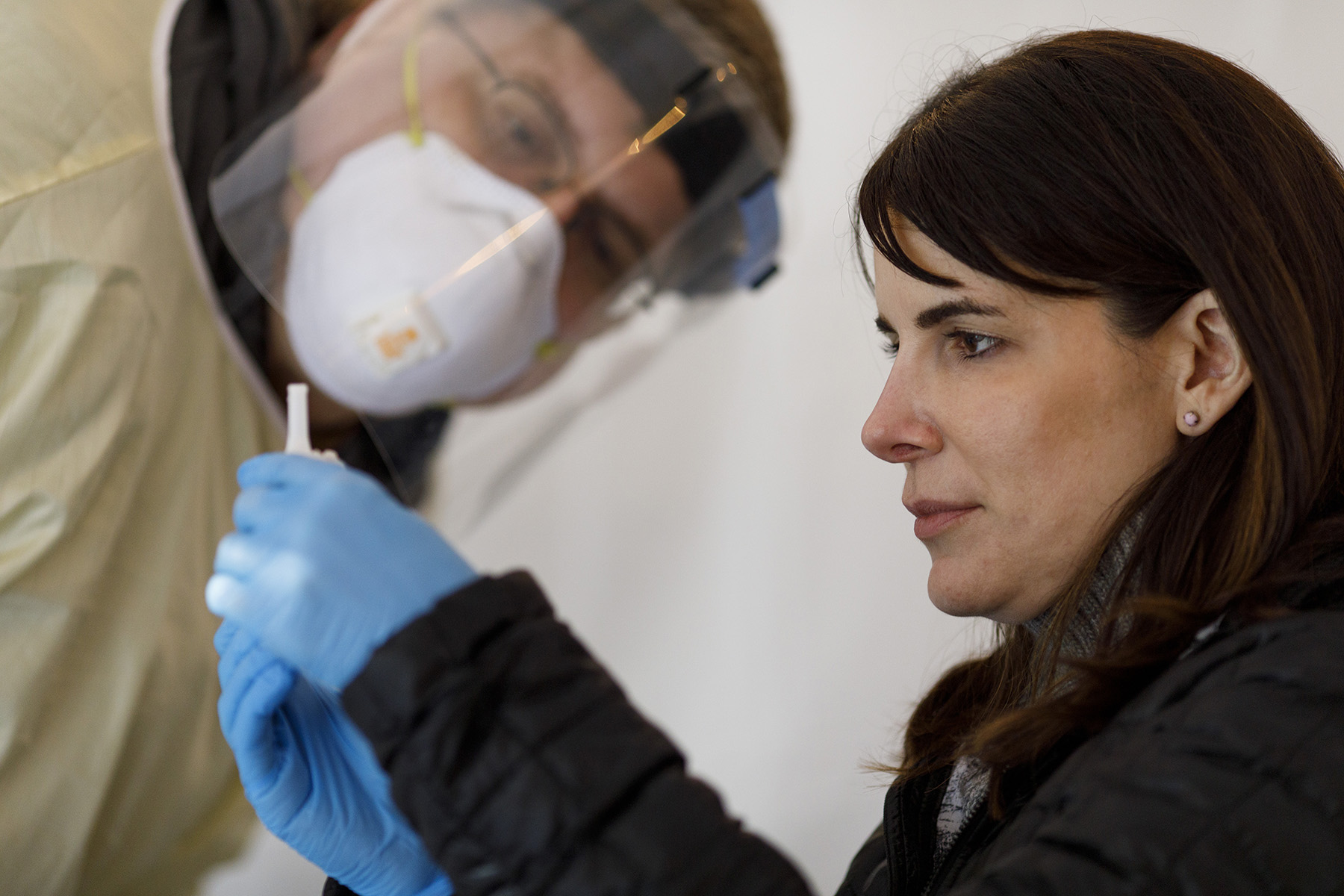When the campus community returns for the start of the spring 2021 semester, the University of Georgia will once again increase the capacity of its voluntary surveillance testing program and increasingly rely on saliva-based testing.
The Veterinary Diagnostic Laboratory has developed a saliva-based test that has proved to be just as reliable as the nasopharyngeal swabs that have been used at the Legion Field surveillance site. In January—as soon as the current supply of nasopharyngeal test kits is exhausted—sites will switch to all saliva-based testing. Accurate results will be provided within 24-72 hours.

“The switch to saliva-based testing will be a major improvement on many levels. Saliva is certainly more comfortable, and the sample kit is user-friendly and more of a closed process. The kits developed for the lab require only 1 ml (whereas the Vault testing we’ve used at previous pop-ups requires 5 ml),” said Dr. Garth Russo, executive director of the University Health Center.
“This process is more hands off and does not require any oral fasting, so walking up and submitting a specimen is likely to be pretty straightforward. Overall, the supervision of the process requires less manual or medical skill, and there is less need for PPE, which is a time and cost savings. We are still dependent on supply chain for kits, but that is much less of a constraint than the current process. In the end, the process should also be safer,” he said.
From Jan. 4-22, capacity at the Legion Field surveillance testing site and pop-up locations across campus will be expanded to accommodate up to 1,500 tests per day (1,000 per day at Legion Field and 500 at pop-up locations).
“Surveillance in our model has a couple of different purposes, which is important to understand. On one hand, we want to provide a convenient, no-cost means for the community to get tested with a reliable test facilitated by staff who are invested in the university’s success. On the other hand, we need a reliable snapshot of the activity of COVID-19 in those who are symptom-free in the population at large on a regular basis in order to understand prevalence and drive timely contact tracing and mitigation measures,” said Russo.
“As a consequence, it is ideal that we have the same diversity of individuals getting tested as we do in the community. The more members of the community participate, the less likely any bias related to individual willingness to volunteer, or fear of the test experience or the consequence of a test result will have on the trend in the results when we aggregate them,” he said.
These tests are free for individuals with no symptoms and can be scheduled through this website. Walk-up appointments can usually be accommodated at Legion Field, and pop-up saliva testing does not require pre-registration. Visit the University Health Center’s website for locations and schedules.
Students who are experiencing symptoms will continue to be tested at the University Health Center.
Those who receive a positive test result will need to isolate in accordance with CDC guidelines. The University of Georgia has set aside nearly 500 rooms to accommodate students from residence halls who have limited options and need to isolate after testing positive or quarantine after being exposed through a close contact.
The University Health Center will continue to provide clinical care for students with symptoms as its primary focus while the university is open. Faculty and staff who are symptomatic should seek the advice of their primary care providers in the community, consider a virtual visit through Augusta Health, or contact DPH for testing.


